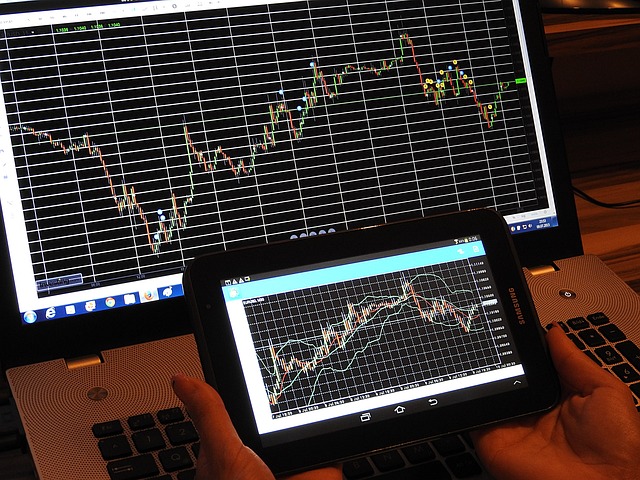Exploring the World of Cryptocurrency Trading Platforms
Author: Jameson Richman Expert
Published On: 2024-08-05
Prepared by Jameson Richman and our team of experts with over a decade of experience in cryptocurrency and digital asset analysis. Learn more about us.
In the rapidly evolving financial landscape, cryptocurrency trading platforms have become essential for anyone looking to engage in the digital asset revolution. These platforms not only facilitate the buying, selling, and trading of cryptocurrencies but also embody the shifting paradigms of finance, technology, and community. In this article, we will delve into the intricacies of cryptocurrency trading platforms, examining their features, benefits, risks, and overall impact on the financial ecosystem.

What is a Cryptocurrency Trading Platform?
At its core, a cryptocurrency trading platform is a software application that allows users to buy, sell, and trade various cryptocurrencies. These platforms operate similarly to stock exchanges but are primarily geared towards digital assets. Users can trade cryptocurrencies like Bitcoin, Ethereum, and thousands of altcoins. While some platforms facilitate peer-to-peer transactions, others operate as centralized exchanges, where trades are managed by the platform itself.
Types of Cryptocurrency Trading Platforms
There are primarily two types of cryptocurrency trading platforms: centralized exchanges and decentralized exchanges. Each type comes with its own set of advantages and disadvantages that cater to different types of users.
1. Centralized Exchanges (CEX)
Centralized exchanges are the most commonly used platforms in the cryptocurrency ecosystem. They act as intermediaries between buyers and sellers and manage the transactions. Some well-known examples include:
- Binance
- Coinbase
- Kraken
- Bitfinex
While centralized exchanges provide greater liquidity and a user-friendly interface, they also require users to trust the platform to safeguard their funds, raising potential security concerns.
2. Decentralized Exchanges (DEX)
Decentralized exchanges, on the other hand, operate without a central authority, allowing user-to-user trading directly on the blockchain. Popular DEX platforms include:
- Uniswap
- SushiSwap
- PancakeSwap
DEX platforms promote privacy and security by eliminating the need for users to deposit funds into a centralized wallet. However, they may lack the same level of liquidity and user support found on centralized exchanges.
Features to Look for in a Cryptocurrency Trading Platform
When selecting a cryptocurrency trading platform, several critical features and factors should be considered. Understanding these can help users make informed choices tailored to their trading needs.
1. User Interface and Experience
A user-friendly interface is crucial for both novice and experienced traders. A clean, intuitive design with easy navigation can significantly enhance the trading experience. Platforms like Binance and Coinbase have set high standards in this regard.
2. Security Measures
Given the significant risks associated with cryptocurrency trading, robust security measures are non-negotiable. Look for platforms that offer two-factor authentication (2FA), cold storage, and withdrawal whitelists. My personal opinion is that security should be the foremost concern for any user, as the loss of funds due to hacking can be devastating.
3. Fees and Charges
Different platforms impose various fees, including trading fees, withdrawal fees, and deposit fees. It's essential to analyze these costs to avoid unexpected charges. I recommend opting for platforms with transparent fee structures and competitive pricing to maximize potential profits.
4. Supported Cryptocurrencies
Choose a platform that supports a wide range of cryptocurrencies to diversify your portfolio. While major coins like Bitcoin and Ethereum are essential, the inclusion of promising altcoins can present lucrative investment opportunities.
5. Customer Support
I believe that efficient customer support is often overlooked, yet it plays a pivotal role in resolving issues swiftly. Research customer service options such as live chat, email support, and comprehensive FAQs before committing to any platform.
The Advantages of Using Cryptocurrency Trading Platforms
The rise of cryptocurrency trading platforms has ushered in several significant advantages that have transformed the way people view and engage with financial markets.
1. Accessibility
Cryptocurrency trading platforms have democratized access to financial markets. Anyone with an internet connection can set up an account and start trading, regardless of geographic location or financial background. This level of accessibility is exciting, and I believe it is a cornerstone of the blockchain ethos.
2. Speed and Efficiency
The speed of transactions on cryptocurrency trading platforms is astonishingly quick compared to traditional markets. Trades can be executed in seconds, allowing users to capitalize on market movements in real-time.
3. Diverse Trading Options
Many platforms offer diverse trading options, such as margin trading, futures contracts, and spot trading. This variety allows traders to employ different strategies based on their risk tolerance and investment goals. Personally, I appreciate platforms that provide a comprehensive suite of trading tools.
4. Educational Resources
Numerous cryptocurrency trading platforms feature educational resources, including tutorials, webinars, and market analysis. This emphasis on education is vital, as it equips users with the knowledge to make informed trading decisions. In my opinion, understanding the market dynamics is as essential as trading itself.

Potential Risks of Using Cryptocurrency Trading Platforms
While the benefits of cryptocurrency trading platforms are substantial, potential risks must be carefully weighed before participating in the digital asset market.
1. Security Risks
As mentioned earlier, security is a significant concern with centralized exchanges. Hacks and breaches are not uncommon, leading to substantial financial losses. I firmly believe that users should store their assets in secure wallets rather than leaving them on exchanges for extended periods.
2. Market Volatility
The cryptocurrency market is notoriously volatile, with prices that can swing dramatically in short periods. While this presents opportunities, it also poses risks that can lead to significant losses. As a trader, one should prepare mentally and financially for this volatility.
3. Regulatory Challenges
The cryptocurrency landscape is still evolving in terms of regulation, and changes can affect how trading platforms operate. Users must stay informed about regulatory developments to navigate these changes effectively.
The Future of Cryptocurrency Trading Platforms
As the cryptocurrency market continues to mature, the future of trading platforms looks promising yet complex. Advances in technology, regulatory refinements, and evolving user demands will shape the landscape in the years to come.
1. Adoption of Decentralized Finance (DeFi)
The rise of DeFi platforms is reshaping how we think about trading and financial services. With decentralized applications enabling borrowing, lending, and yield farming without intermediaries, I envision a future where traders increasingly turn to DEX platforms for their needs.
2. Enhanced Regulatory Frameworks
Increased regulatory clarity is likely to emerge as governments and financial institutions respond to the growing cryptocurrency market. A balanced regulatory framework could establish trust and legitimacy, attracting more users to the space.
3. Integration of Artificial Intelligence and Machine Learning
The integration of AI and machine learning technologies can revolutionize trading platforms by providing intelligent trading algorithms, predictive analytics, and enhanced user experiences. I find this development particularly exciting, as it could lead to more personalized and efficient trading strategies.
Conclusion
In summary, cryptocurrency trading platforms are at the forefront of a financial revolution that enriches our lives with new opportunities and challenges. By understanding the nuances of different platform types, their features, and the inherent risks, traders can navigate this dynamic landscape with confidence. As the cryptocurrency ecosystem continues to evolve, I encourage all users to remain informed, engage with broader communities, and, most importantly, trade responsibly.